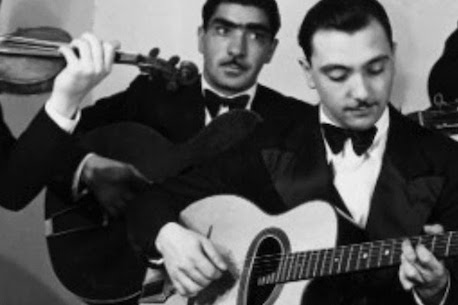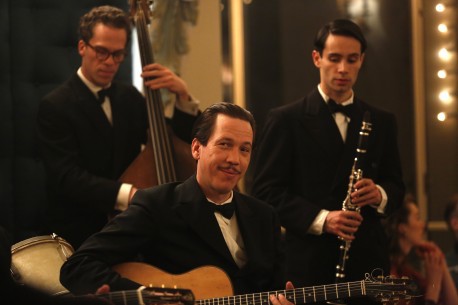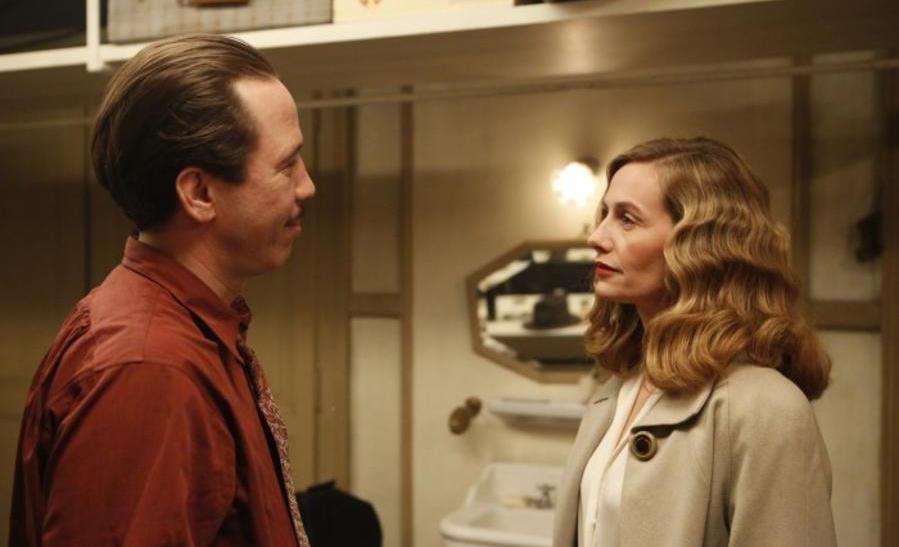 By Adam Ray Palmer My first review of the 67th Berlinale is the opening gala premiere. French drama film Django opened the Berlinale this evening with the stars in-tow. Parisian filmmaker Étienne Comar brings us Django in his directional debut with starring roles going to Reda Kateb and Cécile de France. Django has a lot to live up to following last year’s Berlinale opener, Hail Caesar!... how did it do? Django tells us the story of jazz legend Django Reinhardt (Reda Kateb), a famous guitarist and composer, and his flight from German-occupied Paris in 1943. As a Sinti, Reinhardt and his family were harassed and hounded by the Nazis. With Django, you have two films in one. You see the type of man and musician Django was, but you also see the Nazi regime portrayed on film again but in a slightly different way. We join the film with World War 2 in full swing. It’s 1943 and the Nazis being in control is the norm. This quite clearly shows that this film is about Reinhardt and his interaction with the Nazis, rather than the other way around. Django provides a fresh look at the Nazis, and how talented and famous people dealt with their regime. Reinhardt quite clearly opposed them but knew full-well there was very little he could do. After a brief introduction to the jazz legend and his music at a concert in Paris, backstage we see a Nazi officer instructs Django and his quintet that he will do a tour of Germany to lift morale of the Nazi camps. This is where the film takes that pivotal turn. Django faces a decision: go on tour and risk his life with the strict orders, or run with him family and risk his life - neither options looks great! He chooses the latter and gets embroiled in numerous cloak and dagger scenarios where he must hideout until one time he gets trapped. He now must do an important gig for officers before going on that deathly tour. Comar’s Django is a triumph in areas. There’s certainly a little padding around the edges but for a directorial debut, Étienne handles Django in a professional and confident manner. Where Comar wins is the intelligently placed dramatic scenes. Ironically, Django (the film) plays out like an orchestral piece of music where there’s powerful highs turning into dark dips, ultimately leading to a crescendo. The opening scene kicks off with a bang, literally from a gun, and the final scene shows an incredible piece of conducted music that leads out the credits. The sporadic placing of the more compelling scenes is delivered expertly and makes the weightier sequences pack an even bigger punch.
But I cannot end the review without touching on Reda Kateb. His performance is captivating as the rock star-behaving Django. He’s effortlessly cool but constantly on edge as the Nazis could be around the corner at any moment. His chemistry with his friend Cécile de France is key because you know there’s trouble waiting for them as they plot their escape. You also get this strange ‘will-they-won’t-they’ type of feeling from them, perhaps a nod that there has been something between them in the past. Overall, Django is a great opener to the Berlinale. I enjoyed the fun of Hail, Caesar! last year but this pips it. The intelligent writing, the movement of the camera and the energetic performances all make for an intense two hours. Cineroom’s Rating: 4 Stars Django premiered at the Berlinale on 9th February – certificate TBC Leave a Reply. |
Previous
|




9/2/2017
0 Comments